After a short stay in hospital, I kind of thought it might be useful to talk about being an inpatient on a general ward, and the things you should consider asking for and ensuring are in place, to support you, as an autistic individual. Going into hospital can be extremely stressful, for several reasons:
– The environment – hospitals are busy places, with lots of different smells, sounds, lighting, foods, and on top of all that, it’s just an unfamiliar place. This can be incredibly over stimulating, and very stressful
– The unexpected – often, medical decisions take time, and it may not be clear what is happening or how long you have to stay or wait for things…which can make it hard to plan
– The routine – the hospital will likely have a different routine to your nomal routine, including mealtimes, seeing the doctor, and because you’re in hospital, you most likely won’t be able to do a lot of the things you usually do, like work or school, or going out, and some of your hobbies (if they are place dependent)
– Having ‘your things’ – finally, you may not have some of the posessions that make you comfortable..this lack of familiarity, and the lack of control in your life, can make life really hard
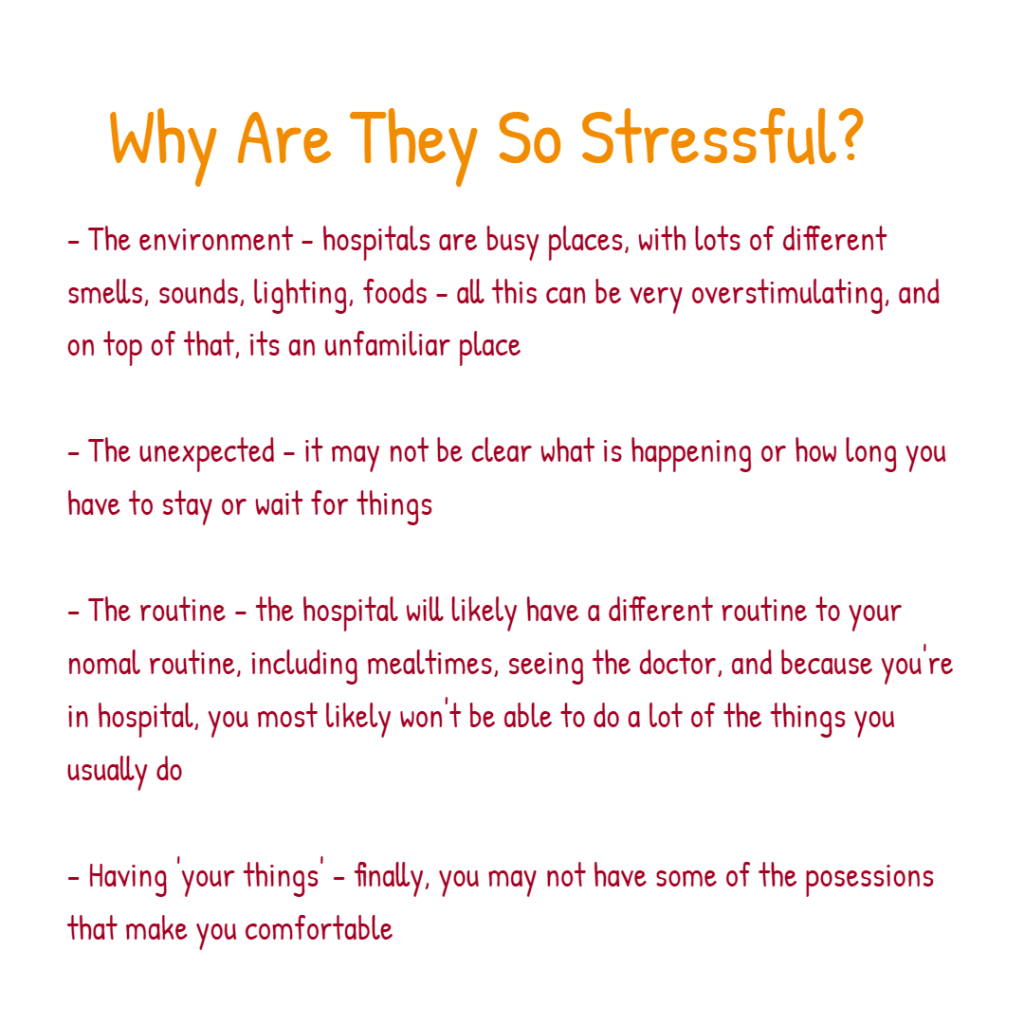
Having support is essential. Some things I would recommend considering or asking about, that aren’t always obvious, include:
– Hospital passports – a hospital passport is a document about you and your health needs and adjustments you might require, and you can download a template online to fill it in yourself, though ideally if you have a mental health team or social worker, or are close with your GP, they would fill this in with you in advance (you can ask them to make sure it is sent to the ward you will be admitted to)
– Hospital disability nurse – all hospitals should have a disability nurse (if not, there should be one who visits) who can help advocate for you and who can discuss you needs with you, but you might need to request to see them
– Care treatment reviews – CTRs are part of NHS England’s commitment to transforming services for autistic people and those with learning disabilities. They involve a team of professionals and people with lived experience talking to you and making recommendations for hospitals on how to adapt your care to make it suit you. They can take time to organise, and ideally should be done in advance if you are likely to need a hospital admission ever (I recommend asking your (mental) healthcare team or social worker if they haven’t mentioned them before), however they can call ’emergency’/blue light ones which are organised more quickly, if you have a sudden admission
– Any reasonable adjustments – even without the above, you have the right to ask for reasonable adjustments. Some might be difficult for a ward to implement, but it is always worth asking. For example, having a side room, having a carer with you, having time to process things or written information about your treatment
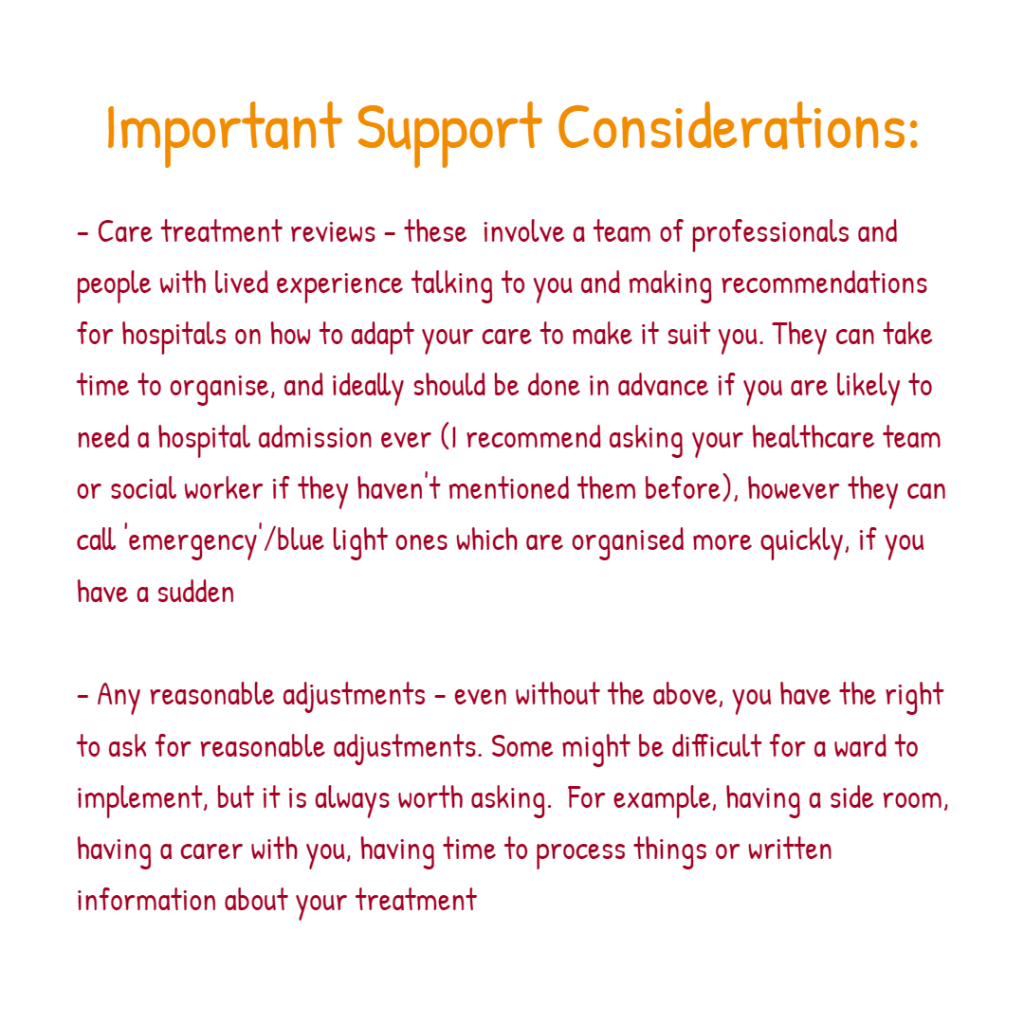
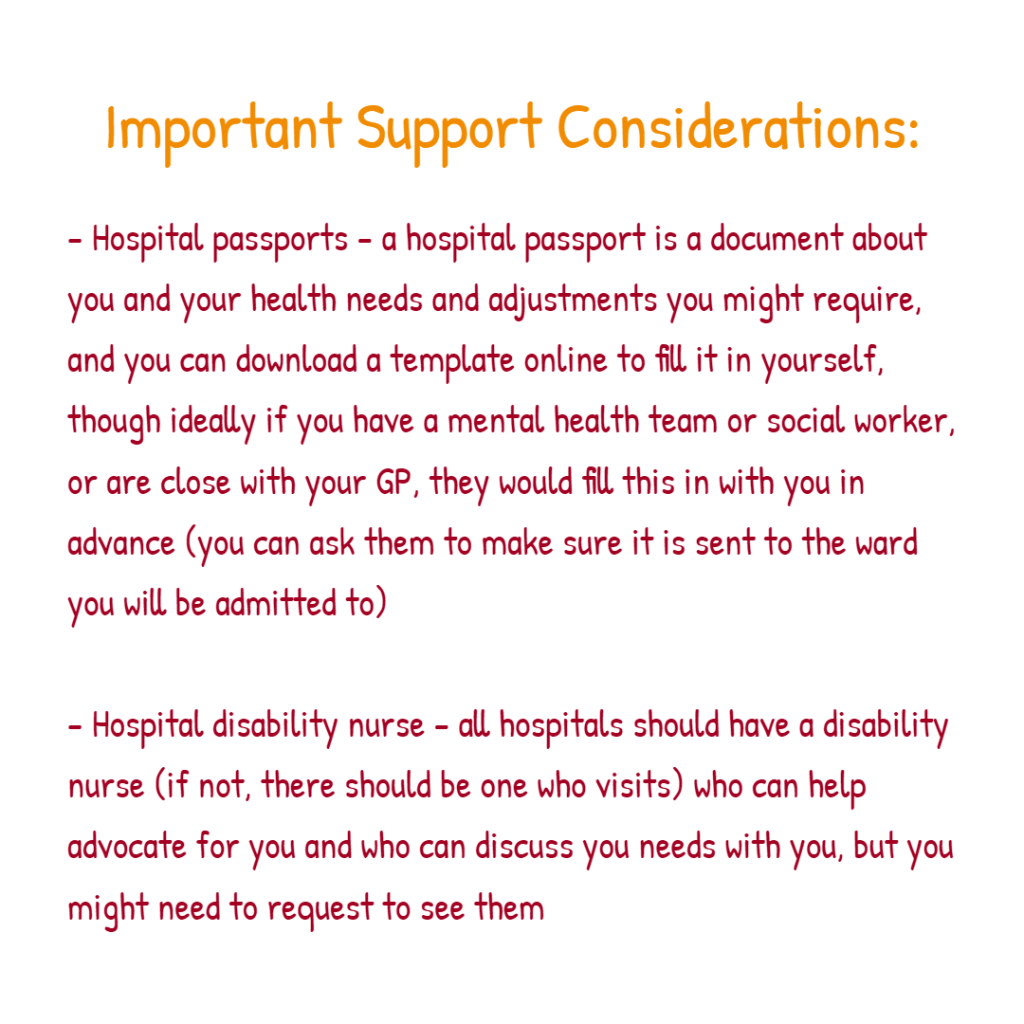
There are also things you can do yourself:
– If you can, prepare in advance, or ask your family to bring in things for you to do, food, drink, etc
– Use tools like noise cancelling headphones, weighted blankets, tinted glasses, etc, to help manage the stimulation
– Phone the ward, or ask when you arrive, to be talked through the ward’s routine, rules, timings, menus, etc
– Consider bringing communication cards/devices if you think they may be useful!
– MOST OF ALL, do not be afraid to ask questions and for support, and to explain your differences and needs!
I hope this helps if you are ever in the difficult situation of being a inpatient on a general hospital ward!
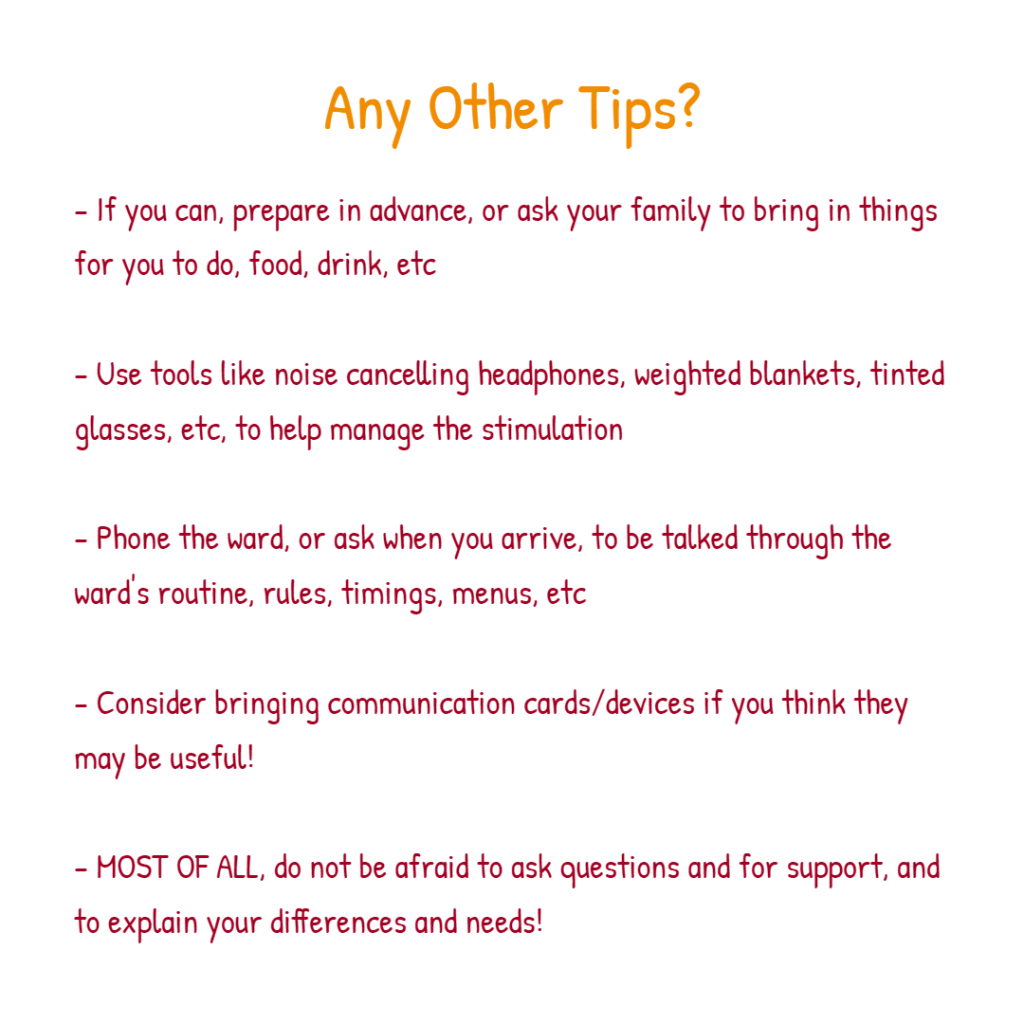
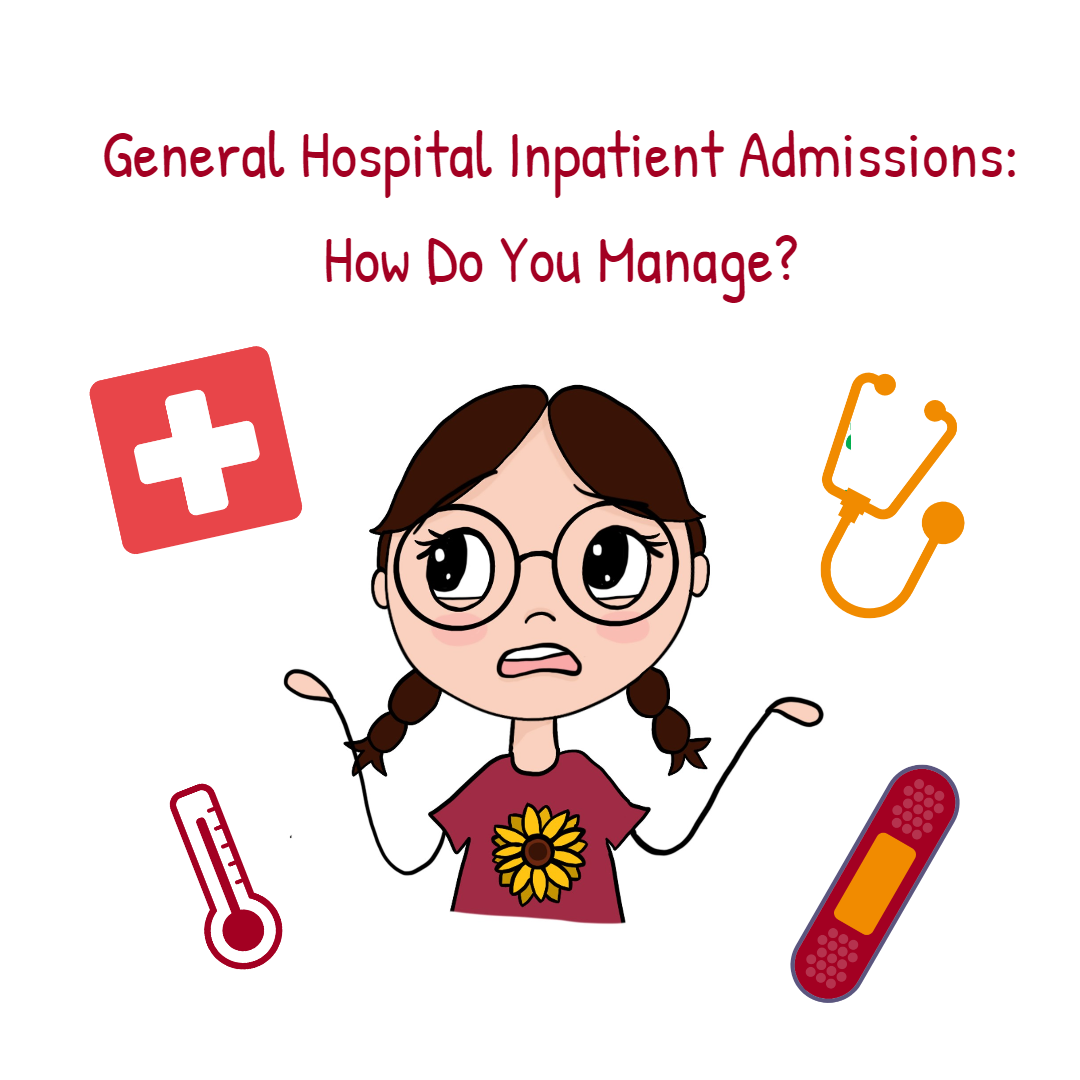
Leave a Reply